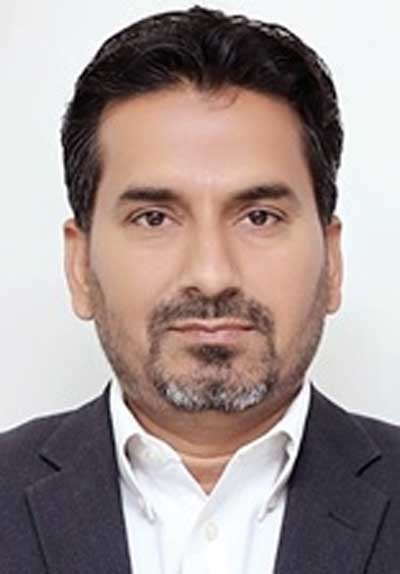This is an accepted reality that youth can play decisive role in development of any society, and if that youth is educated and forward looking then process of societal reforms and growth gets multiplied. In this current age of digitalization, emerging technologies and knowledge economy our educated youth is at risk. Today’s youth, despite being vibrant, tech savvy and having better IQ is living with illusions that information is knowledge, connection is relation and convenience is happiness. These self-proclaimed myths are leading majority of youth towards complacency, hence not preparing for what is coming ahead and miscalculating the ever-rising cut throat competition of “survival of the fittest”.
It was generally believed that the entry in corporate sector or highly paid job markets is very competitive, but things have gone far ahead of it now. Seeking career in public sector or even taking route of entrepreneurship too has become equally competitive and hard nuts to crack.
Career Counseling and Placement structure in HEIs of Pakistan: Despite its increasing significance and utility, majority of public and private sector universities in Pakistan do not have any established center or vibrant setup of career counseling and placement, whereas few of them have good practices to share in this regard. Global connectivity, challenges of local job market, surge in international ecommerce jobs and post COVID-19 stiff competition in international markets demand Pakistani universities to get into win-win competition and do the handholding of their graduating students. Our universities are overwhelmingly skewed towards traditional classroom academic content, defined outdated syllabus and associated challenges of adopting contemporary subjects owing to regulatory environment and accreditation bodies.
The conventional way of work, lack of teacher student connectivity, paper-based research usually miles away from practical societal issues and race of numeric cum time-based promotions have polluted the culture of universities to a larger extent. Non-contemporary content and conventional teaching methodologies are quickly getting irrelevant and obsolete. It seems as if our HEIs are contented and happily want to continue living with this culture and that too in isolation but the World is at far different track.
Universities in developed or even developing World are redefining their future role amidst emerging technologies and knowledge economy. The lack of funding and discontinuity in policies is undoubtedly a contributing factor in this deterioration, but any hefty funding or solution of financial issues with current way of work and culture would hardly do the magic.
By the time a young student gets to university, he/she has already become victim of the prototype thinking hears and says prevailing at higher secondary level and engraved in overwhelming majority of the parents. University semester duration is too much calculated and time bound that the core focus always remains on academic content and syllabus leaving little or no room for direction setting, handholding and skills development. I am a strong advocate of handholding of young students for direction setting and counseling from higher secondary education level.
This is the time when youth need mentoring and coaching more than ever before, but unfortunately the students at this stage are put too much into the race of cramming and pseudo regimental disciplined environment making them robot and not daring to talk other than books. If the significance is rightly understood, then having trainers or counselor side ally at each college or even few counselors in each tehsil or districts to start with required skill set and training, can generate impactful results making the quality of university input far better than what it is right now. Very few exceptions among students being fortunate and privileged enough to have got better schooling and upbringing, make their head start in university, whereas rest of the lot having average or below averages schooling and family background keeps struggling for survival in HEIs and usually end up short of finished line.
Universities have role to play: Universities have their mini-universe inside with enormous resources, intellect, infrastructure and all what it takes to bring tangible change in society. The complacency and contentment engraved in cultures of universities, with no or little attempt of out of box thinking, lack of synergies and diminishing urge to be flag bearer for societal development are the contributing factors making universities play fractional part of what they are potentially capable of.
The faculty and administration of universities will have to break their silos and create synergies for collective wisdom. Gone are the days of classroom academic teaching alone, we’ll have to see things with more of zoom out lens with universities talking to each other and collaborating for larger good? To be competitive and impactful, students need to be equipped with employability skills, emerging technologies and human resource branding techniques along with syllabus and academic content. Who can be a better counselor and torch bearer than the teacher himself? Teaching faculty too will have to take charge of skills development and career of students by opening their doors to external stakeholders, academic partners, industrial experts and potential employers.
IUB and Directorate of Career Counseling and Placement Center: Owing to the visionary and unconventional leadership of incumbent Vice Chancellor Engr. Prof. Dr. Athar Mahboob (TI), the Islamia University of Bahawalpur (IUB) underwent through a massive growth and development plan in last four years. On one hand, IUB has witnessed exponential growth in number of faculties, departments, students and staffing, whereas on the other hand it has invested significantly in student’s co-curricular activities, career counseling, trainings, skills development and efforts to reach out to industry and job markets.
The establishment of Directorate of career Counseling and Placement Center (CCPC) in Q-3, 2021 has been among several other strategic initiatives taken during Prof. Athar’s tenure. A dedicated center with support and guidance of leadership, clear direction and liberty of thinking out of the box, CCPC took onboard its very first director having 22years’ experience of corporate sector, academia and entrepreneurship. CCPC in last 20 months has been embarked upon multi prong strategy. On one hand, establishing green field operations, spreading awareness, taking key stakeholders onboard, training & skills development sessions, while on the other hand establishing linkage with industry, delivering tangible results for employability of graduates and at the same establishing brand name of IUB.
In last 20 months alone, the Career Counseling and Placement Center (CCPC) at IUB has augmented the efforts and generated promising performance numbers. During this period high level numbers of 80 training and awareness sessions, 21 skills development sessions, 5 conferences, 11 seminars and expert talks were achieved under career counseling ambit. Whereas the placement office arranged 42 recruitment drives, 38 internships drives, 1 career fair and signed MoU with 10 partner organizations for skills development and placement of IUB students.
The weaken link of industrial collaboration and on boarding has been strengthened with more engagement of potential employers and incorporating their feedback in order to produce graduates as per their expectations. Such efforts are bearing fruits as the IUB graduates (event the students of 6th and 7th semesters) have been able to secure employments with best employers in large urban center like Karachi and Lahore. Similarly, CCPC in collaboration with Directorate of Alumni is actively engaged in taking IUB alumni onboard for potential placement opportunities for graduates.
Among several initiatives taken in 2022, CCPC takes pride on achieving three flagship and strategic milestones, the establishment of IUB Competitive Exams Center (ICEC), Young Leaders Program (YLP) and IUB Skills and Career Society. IUB becomes the first public sector university to have established such an authentic and quality center ICEC preparing young aspirants of IUB and this region for competitive exams.
Having excellent infrastructure, competent teachers pool, library and hostel facilities, ICEC is helping young aspirants fulfil their dreams to crack CSS, PMS, One Paper Exams and Aptitude Tests. Young Leaders Program (YLP) is yet another unconventional initiative of developing IUB students into future leaders. In YLP, young students undergo through additional 60 hours of professional trainings and sessions with successful leaders both within and outside university without affecting their regular semester teaching. Students are inducted in YLP after competitive process of test and interview while ensuring diversity of gender, faculties, departments, geographies and demographics. Skills and Career Society is a student body having advisor, co-advisors, president, cabinet and volunteers. This society plays instrumental role in students’ engagements, mobilization and arranging relevant sessions of skills development.
Academia-Industrial Linkage: For the universities to play their real and tangible role in societal development, inclusiveness and openness for industry are the areas where all HEIs need to focus on in months to come. Currently this linkage with industry is mere lip service and board room terminology, which has resulted in significant trust deficit between academia and industry. Industry do not see solutions of their issues and applied research coming out from universities, whereas universities on the other hand are hardly willing and capable enough to talk to industry with workable solutions and producing graduates as per industrial requirements.
The industry, which is largest placement platform for graduates, look for complete human resource package not just degree. The graduates with decent degree clubbed with grip on core subject knowledge, desired confidence level, better communication, acceptable attitude, team player traits, and appetite for leaning and leadership skills are more sellable than the rest of the lot.
Gone are the days when these were called as “soft skill”, instead modern world is branding them as professional or leadership skills. Universities should equip their students with these mandatory skills withwell structured and conducive learning environment where office of career counseling, faculty and industry join hands to brand their graduates for enhanced employability. Cross functional teams can be formed to device and execute such plans with defined milestones and leadership support. This gulf needs to be bridged before widening further and our regulatory bodies as well as universities leaderships need to do the necessary ground leveling in order to achieve acceptable level. Career counseling and skills development is not any transactional activity instead it’s a process; therefore the occasional events, seminars, conferences, MoUs and short-term engagements will help achieve the fraction of larger objectives.
The need for handholding and career counseling of young students and graduates is much more than ever before. Pakistani youth, amidst fast paced global changes and emerging technologies, is at risk and requires for immediate direction setting and practical steps to transform them into enablers in national development.
Our youth is at risk because of no career counseling which is need of the hour



